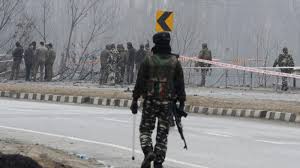Dismissed for marrying Pakistani, CRPF constable approaches High Court: ‘Arbitrary, capricious and whimsical’

New Delhi, May 29, 2025: A former woman constable of the Central Reserve Police Force (CRPF) has filed a petition in the High Court. She challenges her dismissal from service after marrying a Pakistani citizen. According to her, the CRPF’s action was “arbitrary, capricious, and a violation of fundamental rights.”
The case has triggered a debate on the limits of personal freedom for uniformed personnel. It questions whether marriage to a foreign national, by itself, should result in loss of a government job.
Background of the Case
The constable, whose name remains undisclosed, served in the CRPF for nearly ten years. She claims to have met her husband, a Pakistani citizen, while he lived in a third country. They later married, and she registered the marriage legally in India.
She says she informed her superiors before the marriage and didn’t try to hide any details. Despite this, the CRPF dismissed her from duty. She wasn’t accused of misconduct or of compromising national security. Her husband’s nationality was the only concern.
Allegation of Rights Violation
In her legal plea, the constable argues that her dismissal violates her fundamental rights under Articles 14 and 21 of the Indian Constitution. Article 14 ensures equality before the law. Article 21 guarantees the right to life and personal liberty.
Her lawyer stated, “Marriage is a personal choice. No one should face punishment for marrying someone, unless there’s a clear security threat.”
The petition urges the court to cancel the dismissal order. It also requests her reinstatement with full salary and job benefits.
CRPF’s Concerns Over Security
The CRPF has not made an official comment. However, sources within the force say the dismissal followed concerns raised by its intelligence wing. Officials flagged a possible security risk due to her marriage with a foreign national, especially from Pakistan.
They argued that her role in the CRPF involved sensitive responsibilities. Even without evidence of wrongdoing, the relationship raised fears of potential exploitation by foreign intelligence.
CRPF officials noted that service members are expected to follow stricter rules. Marriages with foreign nationals, particularly from countries like Pakistan or China, are discouraged or monitored closely.
Legal Experts Share Divided Views
Opinions among legal professionals vary. Some agree with the government’s cautious stance. Others believe this decision goes too far without proof of any security breach.
Supreme Court lawyer Neha Sinha said, “Dismissal without evidence of misconduct is unfair. The response must be proportionate. You can’t penalize someone just based on assumptions.”
On the other hand, former security officers defend the CRPF’s decision. They argue that jobs involving national security require personnel to avoid even potential risks. A retired CRPF DIG stated, “Our forces need higher vigilance. Marriages with nationals from enemy countries can pose real threats.”
Human Rights and Gender-Based Concerns
The case has also caught the attention of human rights and women’s rights groups. Activists claim the constable was punished only because of her husband’s nationality.
An advocate from a rights organization said, “Being married to a Pakistani citizen doesn’t make someone disloyal. That’s discrimination. You can’t presume guilt.”
The constable also believes gender played a role. She questioned whether a male officer in her place would have faced the same fate. “If I were a man, would I have been treated the same way?” she asked in her affidavit.
What Happens Next?
The High Court has issued a notice to the Ministry of Home Affairs and the CRPF. They must respond within four weeks. A detailed hearing is expected in the coming session.
The constable remains hopeful that the court will grant her justice. “I’ve always served India with commitment. My marriage hasn’t changed my loyalty. I want my dignity and my job back,” she said.
This case may set a new legal benchmark. It highlights the need to balance national security with personal freedom, especially for those who serve in uniform. If the court rules in her favor, it could influence how India’s security forces handle similar cases in the future.






